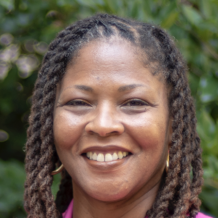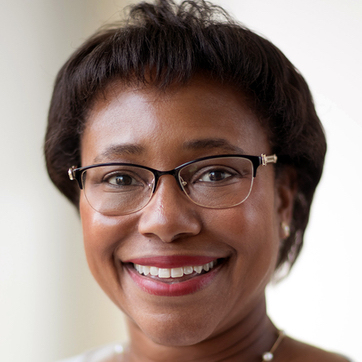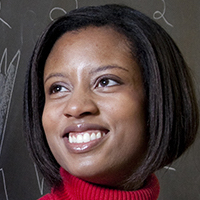 On July 1, Chanita Hughes-Halbert will join the Norris Comprehensive Cancer Center at the University of Southern California as associate director for cancer equity, a newly created position. She will also join the faculty at the university’s Keck School of Medicine as a professor and vice chair of research in the department of preventive medicine. She has been serving as a professor of psychiatry and behavioral sciences, co-leader of the Cancer Control Program, holder of the AT&T Distinguished Endowed Chair at the Hollings Cancer Center, and associate dean for assessment, evaluation, and quality improvement at the College of Medicine at the Medical University of South Carolina.
On July 1, Chanita Hughes-Halbert will join the Norris Comprehensive Cancer Center at the University of Southern California as associate director for cancer equity, a newly created position. She will also join the faculty at the university’s Keck School of Medicine as a professor and vice chair of research in the department of preventive medicine. She has been serving as a professor of psychiatry and behavioral sciences, co-leader of the Cancer Control Program, holder of the AT&T Distinguished Endowed Chair at the Hollings Cancer Center, and associate dean for assessment, evaluation, and quality improvement at the College of Medicine at the Medical University of South Carolina.
Dr. Hughes-Halbert is a summa cum laude graduate of Hampton University in Virginia. She holds master’s and doctoral degrees from Howard University in Washington, D.C.
 Colman Domingo, a noted actor, director and playwright, will be joining the faculty of the School of Dramatic Arts at the University of Southern California. He will begin this fall as a guest lecturer and master artist for students in both the undergraduate and graduate populations. Once filming has wrapped on previous commitments, he will begin teaching full time in the classroom in 2022.
Colman Domingo, a noted actor, director and playwright, will be joining the faculty of the School of Dramatic Arts at the University of Southern California. He will begin this fall as a guest lecturer and master artist for students in both the undergraduate and graduate populations. Once filming has wrapped on previous commitments, he will begin teaching full time in the classroom in 2022.
A graduate of Temple University in Philadelphia, Domingo has taught at the University of Texas at Austin and the University of Wisconsin-Madison.
 Paula Hammond has been appointed an Institute Professor, the highest honor bestowed upon faculty members at the Massachusetts Institute of Technology. She is a professor and chair of the department of chemical engineering at MIT. She is the first woman and the first African American to hold the post.
Paula Hammond has been appointed an Institute Professor, the highest honor bestowed upon faculty members at the Massachusetts Institute of Technology. She is a professor and chair of the department of chemical engineering at MIT. She is the first woman and the first African American to hold the post.
Professor Hammond holds a bachelor’s degree in chemical engineering and a Ph.D. from MIT. Dr. Hammond earned a master’s degree at the Georgia Institute of Technology.

Stephanie Luster-Teasley, professor and chair of the department of civil, architectural, and environmental engineering at North Carolina A&T State University, has been assigned the additional duties of vice provost for undergraduate education. She joined the faculty at the university in 2004.
After obtaining a bachelor’s degree in chemical engineering at North Carolina A&T State University, Dr. Luster-Teasley earned a master’s degree in chemical engineering and a Ph.D. in environmental engineering from Michigan State University.












Good to see Black women in the “STEM” fields making names for themselves and winning accolades for their accomplishments in disciplines that are not our traditional “strong suit” as a people.
Go ahead, ladies — “with yo’ bad selves!”